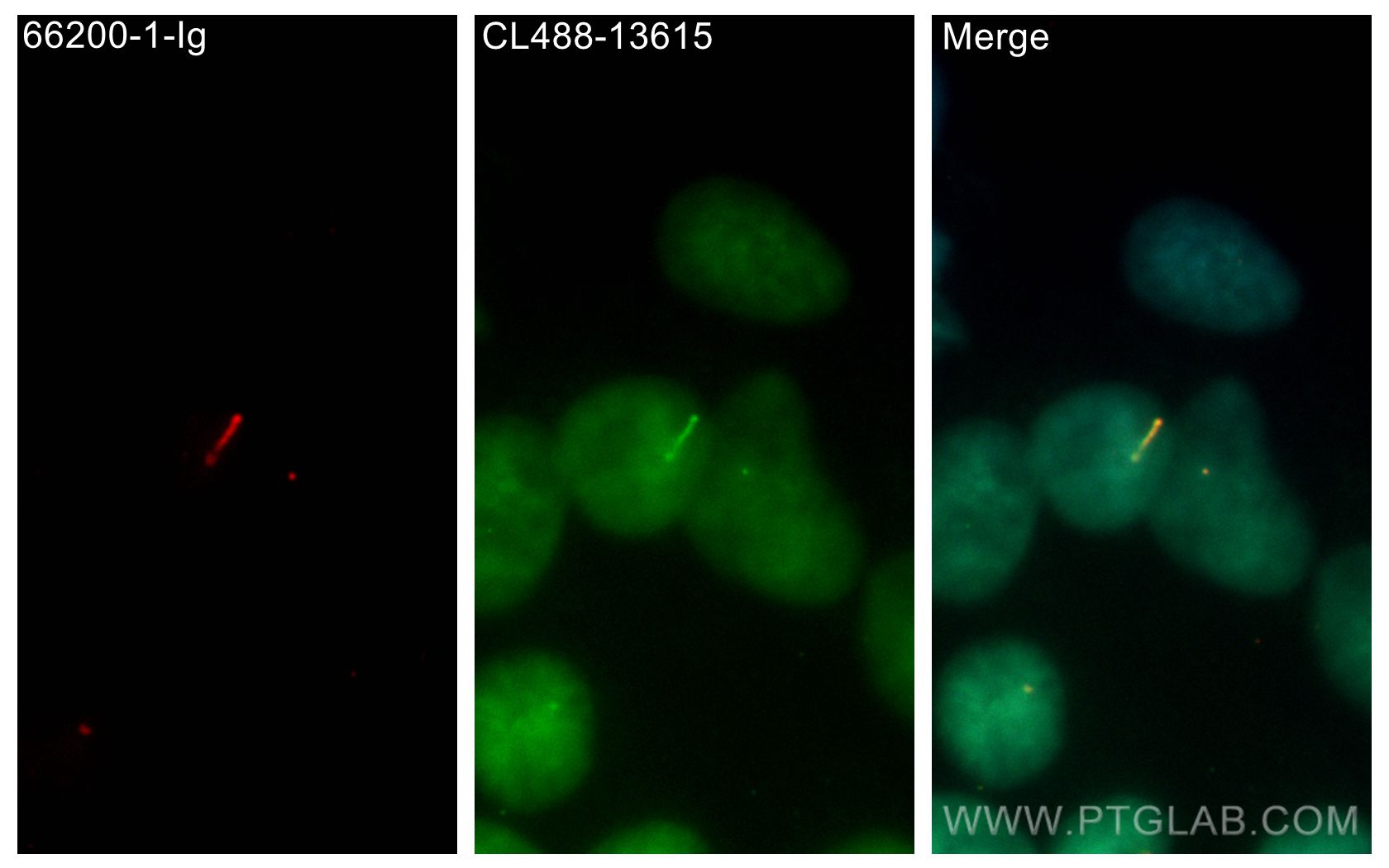- Featured Product
- KD/KO Validated
CoraLite® Plus 488-conjugated IFT20 Polyclonal antibody
IFT20 Polyclonal Antibody for IF
Host / Isotype
Rabbit / IgG
Reactivity
human, mouse, Canine
Applications
IF
Conjugate
CoraLite® Plus 488 Fluorescent Dye
Cat no : CL488-13615
Synonyms
Validation Data Gallery
Tested Applications
| Positive IF detected in | hTERT-RPE1 cells |
Recommended dilution
| Application | Dilution |
|---|---|
| Immunofluorescence (IF) | IF : 1:50-1:500 |
| Sample-dependent, check data in validation data gallery | |
Product Information
CL488-13615 targets IFT20 in IF applications and shows reactivity with human, mouse, Canine samples.
| Tested Reactivity | human, mouse, Canine |
| Host / Isotype | Rabbit / IgG |
| Class | Polyclonal |
| Type | Antibody |
| Immunogen | IFT20 fusion protein Ag4521 相同性解析による交差性が予測される生物種 |
| Full Name | intraflagellar transport 20 homolog (Chlamydomonas) |
| Calculated molecular weight | 15 kDa |
| Observed molecular weight | 15-18 kDa |
| GenBank accession number | BC038094 |
| Gene symbol | IFT20 |
| Gene ID (NCBI) | 90410 |
| Conjugate | CoraLite® Plus 488 Fluorescent Dye |
| Excitation/Emission maxima wavelengths | 493 nm / 522 nm |
| Form | Liquid |
| Purification Method | Antigen affinity purification |
| Storage Buffer | PBS with 50% Glycerol, 0.05% Proclin300, 0.5% BSA, pH 7.3. |
| Storage Conditions | Store at -20°C. Avoid exposure to light. Stable for one year after shipment. Aliquoting is unnecessary for -20oC storage. |
Background Information
Intraflagellar transport (IFT), mediated by molecular motors and IFT particles, is an important transport process that occurs in the cilium. IFT particles are multi-subunit complexes that are made up of complex A and complex B. IFT20 is a component of IFT complex B and involved in ciliary process assembly. It is associated with the Golgi complex and plays a role in the trafficking of ciliary membrane proteins from the Golgi complex to the cilium.
Protocols
| Product Specific Protocols | |
|---|---|
| IF protocol for CL Plus 488 IFT20 antibody CL488-13615 | Download protocol |
| Standard Protocols | |
|---|---|
| Click here to view our Standard Protocols |


